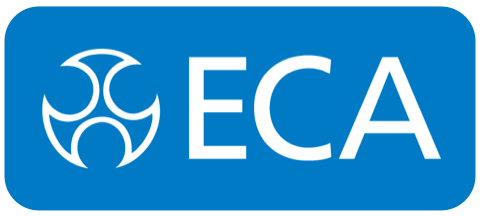The HR Files
In the HR files you will find advice and step by step guidance on key HR processes which include template letters that will assist you in applying employment law correctly. There are also signposts to further support and assistance.
Contracts and Handbook
Employers are required to provide a written statement of employment particulars or a contract of employment on or before the start date for workers and employees.
An employee handbook is an important document that communicates your company’s values, policies, and rules to new and existing employees.
On this page you can find a template contract and handbook as well as guidance on statutory pay rates, holiday pay, employment status and prevention of illegal working.
Apprenticeship Agreements
Apprenticeship agreements must satisfy certain conditions contained in the Apprenticeships, Skills, Children and Learning Act 2009.
ECA have produced separate and dedicated apprenticeship agreement templates and guidance to meet the criteria for England, Wales and Northern Ireland as well as specific documents for Fire, Emergency and Security Systems (FESS).
Grievance
Grievances are concerns, problems, or complaints that employees raise with their employers. Many potential grievances can be resolved informally in the workplace.
It is a legal requirement that all business must have a written grievance procedure in place and share it with all employees. In this section we look at what should be included in a grievance procedure and provide step-by-step guidance for employers.
There are financial penalties available to Employment Tribunals if you fail to follow the minimum grievance process outlined in the Acas Code of Practice.
Discipline
Disciplinary situations include misconduct and/or poor performance. Although many potential disciplinary issues can be resolved informally in the workplace, fairness and transparency are promoted by developing and using rules and procedures for handling disciplinary situations.
You should start formal disciplinary action where a matter cannot be resolved informally, and you have concerns about an employees work or conduct.
In this section we outline a fair disciplinary process and the key legal requirements that need to be embedded including a statutory right to representation.
There are financial penalties available to Employment Tribunals if you fail to follow the minimum disciplinary process outlined in the Acas Code of Practice.
Further HR Guidance
ECA in partnership with WorkNest offer HR advice and guidance on a range of popular topics including flexible working, parental leave and GDPR. The guides provide recommendations and advice on how to apply good practice in the workplace and there are also template letters and forms.
If you can’t find what you are looking for, please contact the Employee Relations helpline.
Equality, Diversity and Inclusion
Promoting and delivering Equality Diversity and Inclusion (EDI) is an essential aspect of good people management.
Equality means making sure everyone can access the same opportunities, whereas diversity means valuing the differences between people, and inclusion is a measure of how safe and welcome people feel in their environment.
A workplace that encourages EDI can help make it more successful, prevent legal issues arising and attract and keep good staff.
You must not treat people unfairly because of reasons protected by discrimination law. The Equality Act 2010 provides legal protection for 9 characteristics: age, disability, gender reassignment, marriage and civil partnership, pregnancy and maternity, race, religion or belief, sex and sexual orientation.
A good place to start is to have a workplace policy covering equality, diversity and inclusion.
Managing Sickness Absence
Several laws are relevant when managing sickness absence and return to work. These include the Equality Act, the Employment Rights Act and the Health and Safety at Work.
Employers should have policies and procedures on managing sick leave to ensure legal compliance. These will also ensure you manage employees consistently and fairly.
In this section we provide detailed guidance on how to manage long-term and short-term sickness absence and reasonable adjustments.
Redundancy
Redundancy is specific terms for when you dismiss an employee because you no longer need anyone or fewer people to do their job. This might be because your business is changing what it does, doing things in a different way, for example using new machinery, changing location, or closing down.
For a redundancy to be genuine, you must demonstrate that the employee’s job will no longer exist. Before you select anyone for redundancy, by law you must follow a consultation and selection process.
In this section we guide you through a collective and individual redundancy process.
TUPE
TUPE applies to employees of business in the UK and protects an employee’s rights when they are transferred to a new employer.
TUPE stands for Transfer of Undertakings (Protection of Employment).
A 'TUPE transfer' happens when:
- an organisation, or part of it, is transferred from one employer to another.
- a service is transferred to a new provider.
There are rules that employers must follow to ensure that the transfer is conducted lawfully. In this section we outline the TUPE process and key steps to follow.
Partner Benefits & Schemes
ECA Members are entitled to free JIB membership. The benefits of joining the JIB compliment the services provided by the ECA and help you to protect your most valuable asset - your employees.
The Environmental Engineering Industry (EEI) Staff Salary Agreement applies to: technical/managerial; supervisory; administrative and clerical staff; and student engineers. The Agreement provides a job evaluation scheme to assist employers put in place a grading and pay structure for their employees – whether or not they use the EEI Agreement.
The Bluesky section of Crystal is operated by Evolve as a non-profit arrangement. Crystal is one of the largest authorised Master Trusts by assets under management in the UK and is supervised by The Pensions Regulator. Crystal is an Auto Enrolment qualifying workplace pension scheme that prides itself on innovation and value for money.
EC Insurance Services (ECIS) is a wholly owned subsidiary of ECA. ECIS provides employee benefits solutions for ECA Members including private medical insurance, cash plan and health assessments.
The Electrotechnical Certification Scheme (ECS), administered by the JIB, is the sole ID and competence card scheme for electrotechnical operatives in the UK and is recognised and endorsed by the industry.
As an ECA Member, an optional JIB membership is available for FREE. JIB membership provides potential cost savings with ECS card discounts,


